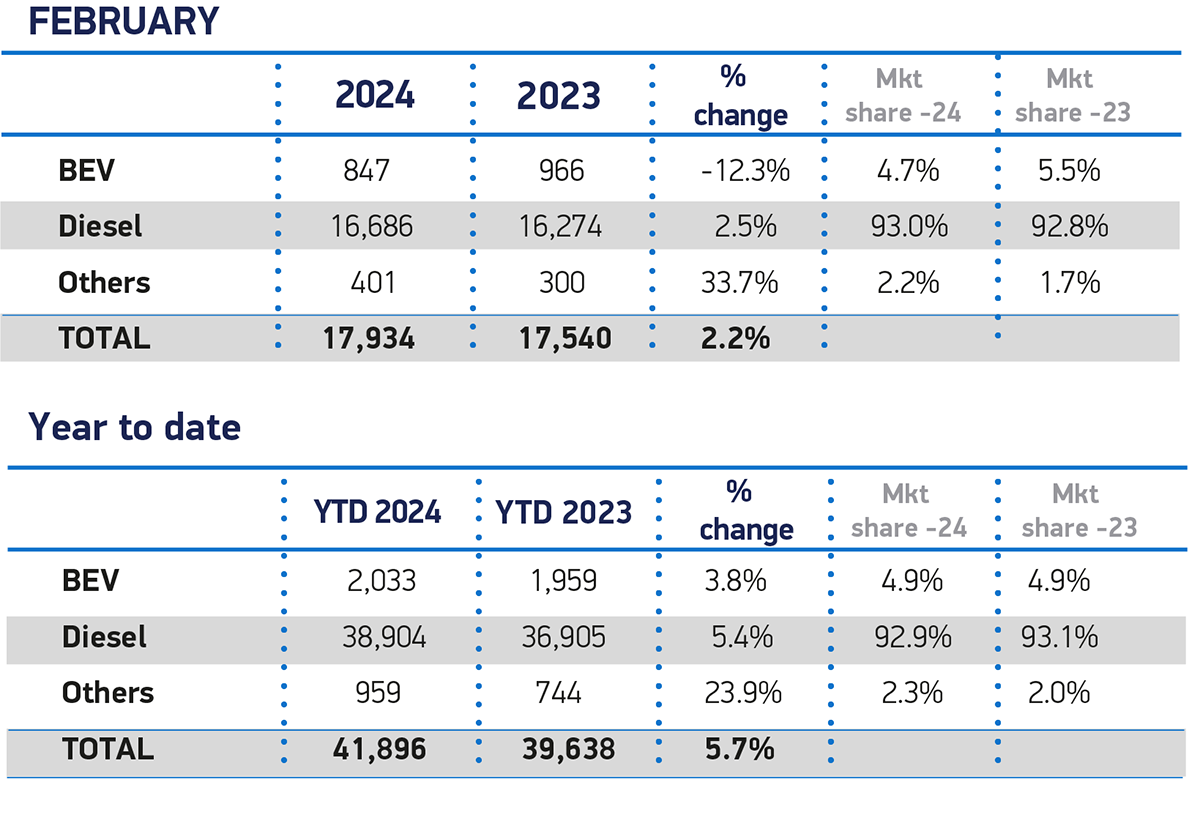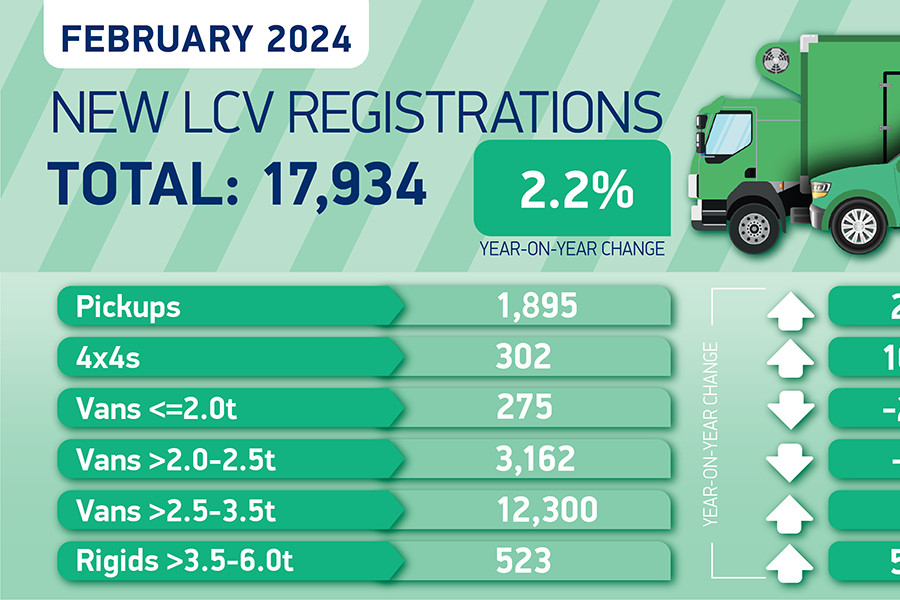The UK’s light commercial vehicle (LCV) sector reported a significant rise in registrations this February, increasing by 2.2% to 17,934 units. This marks the highest registrations for a February in 26 years.
February is often seen as a quiet month, with many operators delaying getting new vehicles until the March number plate change.
Data from the Society of Motor Manufacturers and Traders (SMMT) shows that this growth was led by large van registrations, which were up by 1.4% to 12,300 units. This accounted for almost 69% of all new van sales this month. This continues the trend of operators looking to maximise efficiency by prioritising vans with larger payloads.
Small and medium van registrations both decreased, by 20.5% and 5.9% respectively, emphasising this move to large vehicles. 4×4 registrations doubled and pickup registrations increased by 21.2%. This growth could have been encouraged by the threat of the government’s change in double cab pick-up taxation. However, since the change was rolled back, it is possible that pickup registrations reduce in March.

Battery electric vehicle registrations face some obstacles, with a 12% decrease year-on-year. Markey share for the month is down to 4.7%, though the year-to-date number remains at 4.9%.
With the new mandate for manufacturers, requiring them to achieve a minimum quota of zero-emissions vehicles each year, this slump in BEV registrations raises some concerns. The SMMT advocates for greater investment in infrastructure, such as van charging points, if the new targets are to be met.
Mike Hawes, SMMT Chief Executive, said, “Britain’s appetite for new vans remains undiminished with 14 months of growth and, with last month’s rethink of taxation for pick-ups, expansion looks to be sustained. However, this growth and confidence must be translated into zero emission vehicles if we are to deliver our green goals. Maintenance of essential incentives and a ramp up of dedicated van-suitable chargepoint installation will be vital if we are to help keep long-term, net zero fleet investment moving forward at the pace needed.”

